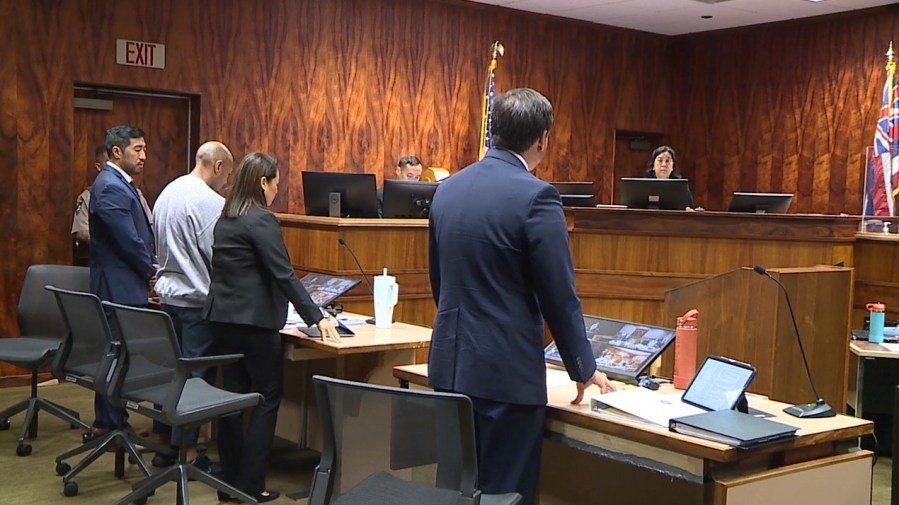HONOLULU (KHON2) — The murder trial of Jamil Hart is now in the jury’s hands. Closing arguments wrapped up Friday in the case accusing him of killing his mother and her dog.
Prosecutors say Hart was high on drugs at the time, while the defense claims he is mentally ill.
During closing arguments, Jamil Hart sat with his head in his hands, not once looking at the jurors.
He sobbed when his attorney read a letter from his mother believed to have been written just before she was killed.
“‘Promise me whenever you feel afraid, remember God is always with you and watching you. You can think of praying to him in your own thoughts just for courage and strength,” read Deputy Public Defender Haley Cheng.
Hart is accused of killing his 74-year-old mother, Gwendolyn Hara-Hart, and her dog Yuko, inside her Mililani apartment back in February 2020, in what prosecutors call a brutal and deliberate act of violence.
“The defendant plunged the switchblade into Gwendolyn’s throat, the right side of her neck, multiple times into her back, multiple times into her right abdomen,” Deputy Prosecuting Attorney Scott Bell told the jury. “The defense injuries to her left hand, her left forearm and her right hand indicate that she tried to fight back.”
Both sides agree the act was heinous. But the state argued Hart was high on crystal methamphetamine at the time of the murder and accused him of malingering – acting psychotic when being examined by prison psychiatrists. Hart has been in custody since his arrest.
“He was on work line, if he’s on work line, he’s not actively psychotic, thus confirming any psychosis he experienced on Feb. 23, 2020 was temporary,” said Bell.
But the defense urged the jury to examine the evidence and testimony from their medical expert that showed he was suffering from mental illness at the time of the killing.
“This is not normal. His mother has just been killed in that apartment, and he’s walking out with a water jug and a laptop,” said Cheng, narrating a surveillance video of Hart leaving his mother’s Mililani apartment.
Hart is charged with second-degree murder, attempted burglary and animal cruelty.
The defense argued for a lesser charge of manslaughter. The case challenges jurors to think through the definition of mental illness and what it looks like.
“The law recognizes that there are people who choose to do drugs, but mental illness is not a choice,” said Cheng.
If convicted or murder, Hart faces life in prison with the possibility of parole.
A manslaughter verdict carries a maximum penalty of up to 20 years in prison, or in Hart’s case, could mean being committed to the state hospital.
